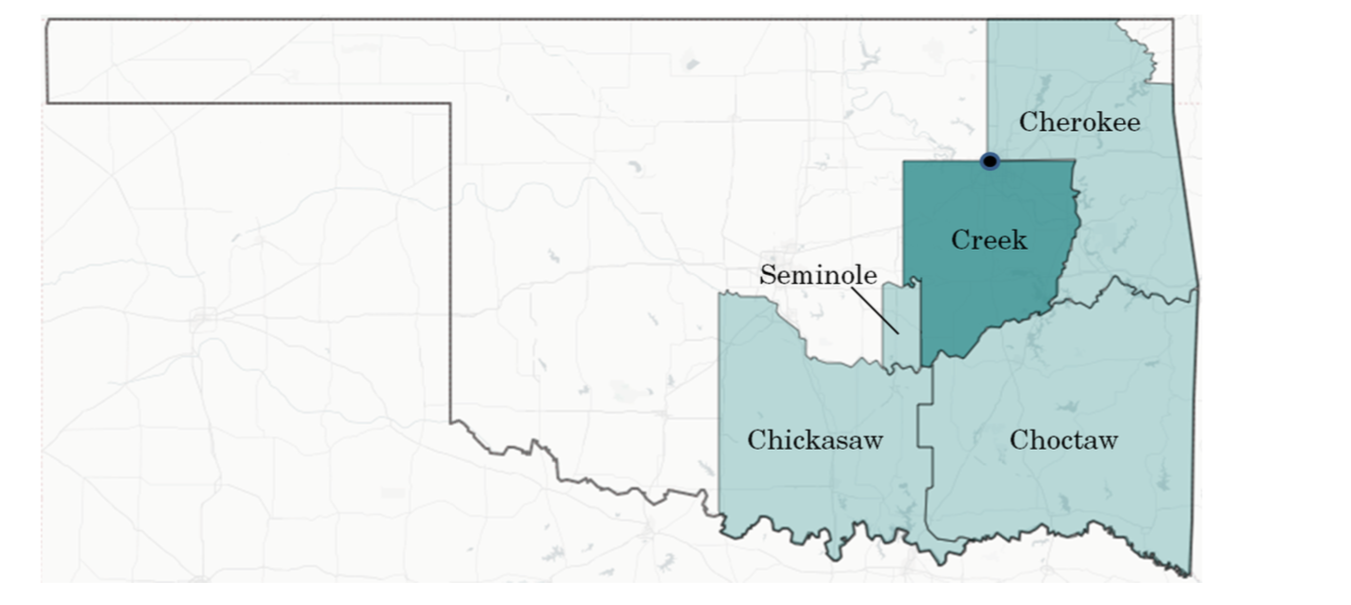
SCOTUS agrees to review murder appeal that could upend state and tribal jurisdiction in Oklahoma
-
Joe Wertz
The U.S. Supreme Court on Monday agreed to hear a case about Native American territory and a 1999 murder that could broadly affect tribal sovereignty and state legal authority.
A state court convicted Patrick Murphy of mutilating and murdering his girlfriend’s former lover, George Jacobs. Murphy later sued, arguing the federal government, not the state, has jurisdiction over the case since he and Jacobs were members of the Muscogee (Creek) Nation — and because the crime occurred within tribal territory established by an 1866 treaty.
A federal appeals court overturned Murphy’s conviction in 2017 after determining that Congress never dissolved the boundaries of the Creek Nation reservation, which existed before Oklahoma became a state.
Attorneys representing the state of Oklahoma and the federal government want the Supreme Court to reinstate the murder conviction and rule that the reservation no longer exists.
If the reservation boundaries are determined to exist, state and federal attorneys argue the decision could “extend to the other tribes whose lands collectively constituted Indian Territory” and establish a territory that covers much of the eastern half of Oklahoma and 1.8 million residents, disrupting court and criminal prosecutions, and laws governing things like taxes, land use, zoning and liquor.
Business groups and organizations representing energy and agriculture industries, including the Oklahoma Independent Petroleum Association and the Environmental Federation of Oklahoma which filed briefs supporting the state and federal government’s position, say such a ruling could also affect oil and gas leases and dramatically change environmental regulations.
